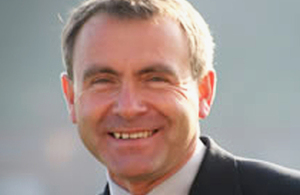New safeguarding strategy boosts support for lone child migrants
New training for foster carers announced as part of a new strategy to improve the care of unaccompanied children

- Specialist training for 1,000 foster carers and support workers to improve their skills and confidence in caring for unaccompanied child migrants;
- Updated guidance for councils on caring for unaccompanied migrant children and child victims of modern slavery;
- Research to be commissioned on the effectiveness of existing support for unaccompanied children and families reunited under the Dublin Regulation and whether more help is needed.
New training for foster carers who support unaccompanied asylum-seeking children is part of a new safeguarding strategy announced today.
The training, which will be made available to 1,000 foster carers and support workers, is backed by updated statutory guidance, a review of local authority funding and a drive to improve inter-agency advice and information sharing. It complements the guidance already available to every foster carer as part of their duties under the government’s Prevent strategy.
These measures are part of a wider government strategy to improve support for councils as they care for these children, and delivers on a commitment made last year as part of the Children and Social Work Act. Other measures in the strategy will help prevent children from going missing and support those who are reunited with family members.
Robert Goodwill, Minister for Children and Families, said:
Child refugees are some of the most vulnerable in our country, and it’s vital that we support them as they build safer lives, often in the care of new families.
Foster carers do an incredible job, but they must have tailored support to help them deal with the complex needs of these children. That’s why we are funding this specialist training, to help them give the best possible support to the children in their care.
New research will also be carried out on the effectiveness of existing support for unaccompanied children and families reunited under the Dublin Regulation and whether more help is needed.
Places on the new training courses will be allocated to each local authority area based on the numbers they have under the National Transfer Scheme.
Immigration Minister Brandon Lewis said:
The UK has a proud history of protecting those in need and this strategy is just one way we are ensuring unaccompanied asylum seeking children with a right to be in the UK are supported.
Last year almost 3,000 unaccompanied children claimed asylum in the UK and they all require ongoing care and protection. This strategy will increase the information and support available to the local authorities who play a crucial role in looking after them.
The government’s new training for foster carers and support workers will be backed by new funding worth £200,000, between 2017 and 2019. An additional £60,000 investment will provide additional resources for social workers supporting children.
The strategy sets out plans to make best practice guides available to social workers, a review of first encounter standards for the police, and comprehensive information for asylum seeking and refugee children to make sure they understand their rights and entitlements.
Lily Caprani, Deputy Executive Director of Unicef UK, said:
The Government’s new safeguarding strategy and revised statutory guidance are positive steps forward for unaccompanied asylum seeking and refugee children. Unaccompanied children in the UK are a particularly vulnerable group, with very specific needs that require a coordinated response prioritising children’s rights and best interests.
We welcome the holistic approach set out in the new safeguarding strategy, including improved training and support for social workers, increased educational support, and a better process for children with a right to have their asylum claim transferred to allow them to be with family in the UK.
Judith Dennis, Policy Manager at the Refugee Council, said:
We very much welcome the publication of this strategy and the work that has been done by both departments to make it happen.
We are particularly pleased to see commitments to ensure foster carers and social workers understand the asylum process and are better able to meet the specific needs of children alone in the asylum system. We look forward to the actions promised in this strategy becoming a reality.